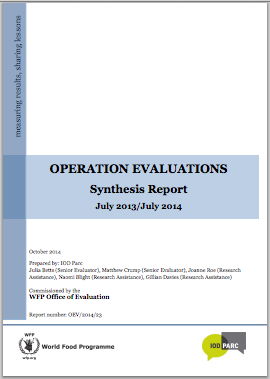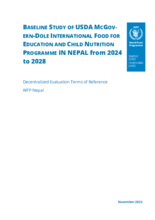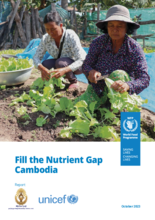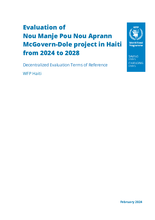
The evaluations found all operations cohered well with national and sector policy frameworks. WFP is directly influencing policy and strategy formulation, and increasingly engaging in joint programming. WFP delivered broadly relevant food assistance, with most operations appropriate to overall needs; however, insufficient differentiation in the analysis and planning of some operations compromised planning for specific beneficiary needs. Results were inadequately documented, particularly at the outcome level, mainly because of weak monitoring systems. Evaluations revealed that the full extent of WFP’s achievements – and under-achievements – is not currently reflected in reporting systems. General food distribution, school feeding and nutrition activities delivered well against coverage targets, with weaker performance in food assistance for assets. Evidence found that WFP served beneficiaries with less food than planned, however. Gender sensitivity was limited.
At the outcome level, WFP made most progress under Strategic Objective (SO) 1 - saving lives. Only limited data were available on SO2 (preventing acute hunger and investing in disaster preparedness and mitigation) and SO5 (capacity-development). Assessment of efficiency and sustainability was shallow; few operations were characterized as generally efficient or potentially sustainable.
External factors affecting results include WFP’s complex operating terrain and funding. Internal factors are symptomatic of an organization in transition, progressing in introducing changes, but with business processes needing to adapt. The lessons presented in this synthesis report aim to support WFP as it becomes increasingly fit for purpose.



